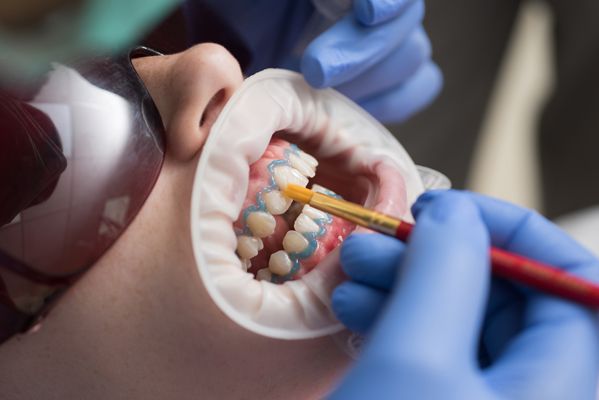5 Oral Hygiene Tips to Protect Your Teeth

It is important to protect your teeth from damage and ensure that there are not any serious oral health concerns that develop as a result of poor oral hygiene. By understanding how to properly protect your teeth and make them stronger, you can ensure you keep a healthy, beautiful smile at all times.
How to protect your teeth
Tooth enamel is the strongest substance in the human body, but the Achilles' heel of tooth enamel is bacteria and acid attacks, which can eat away at the minerals and cause enamel to erode. Subsequently, it is important to properly protect your teeth using these five oral care techniques.
1. Brush several times a day
First and foremost, good oral hygiene starts with brushing several times each day. By brushing, you not only protect your teeth by removing any food particles or other harmful substances that can cause tooth decay, but the teeth are also strengthened by providing them with the mineral support they need.
Be sure to brush the entire mouth, not just the teeth, as bacteria can attack the gums and other supporting tooth structures as well.
2. Floss and use mouthwash
Most people understand that flossing and using mouthwash is important, but very few actually floss and use mouthwash frequently enough.
While it may not be entirely necessary to floss and use mouthwash after every meal, doing so just once a day can significantly help to protect your teeth in the areas that cannot be reached through brushing, such as in between teeth and in the very back of the mouth.
3. Use a fluoride treatment
Fluoride is tooth enamel's best friend as it helps support the minerals found in enamel and fights against bacteria attacking the enamel. The best way to utilize fluoride on a daily basis is to use a fluoride-based toothpaste and mouthwash.
In the event enamel erosion has begun, talk to a dentist about a stronger fluoride treatment in order to protect your teeth in the proper manner.
4. Avoid harmful foods and drinks
Many instances of tooth decay can be largely attributed to a poor diet, which consists of foods high in sugar and other harmful carbohydrates. In order to protect your teeth to the fullest extent, try and avoid too much intake of harmful foods and drinks, such as coffee, sweets and tomato-based products.
For many, giving up coffee or other foods and drinks that may harm enamel is not feasible, in which case, extra dental care can help protect your teeth after consumption.
5. Visit the dentist regularly
Last but certainly not least, it is very important to visit the dentist on a regular basis to properly protect your teeth. While good oral hygiene can significantly reduce the chance of enamel erosion, there is still a chance plaque can build up on the surface of teeth.
By visiting the dentist for a dental cleaning and checkup regularly, you can ensure good oral hygiene and protect your teeth and remove any plaque that has hardened and become too tough to remove through brushing.
Request an appointment here: https://www.mediacenterdental.com or call Media Center Dental at (818) 473-1133 for an appointment in our Burbank office.
Check out what others are saying about our dental services on Yelp: Oral Hygiene Basics.
Recent Posts
Regular checkups and cleanings with a family dentist are important ways to prevent cavities and tooth decay. However, there are effective strategies that can help you protect your teeth and maintain your oral health in between appointments. The following tips from a family dentist can create a proper oral hygiene routine and reduce the risk…
Teeth whitening works by applying a peroxide gel that lifts stains from enamel, the tooth’s outer layer. Custom trays hold the gel evenly against the teeth, promoting consistent shade change while limiting gel on the gums. As a general dentist, the focus stays on fit, concentration, and timing to help patients whiten gradually and comfortably.…
Children's oral health lays the foundation for a lifetime of healthy smiles. Pediatric dentists can promote proper oral and speech development by identifying and treating dental issues early on. Since these dental providers complete the training necessary to deliver tailored care for the needs of young patients, they are typically the best choice for children's…
Choosing the best dentist is essential for maintaining your oral health. However, finding the right dentist for you can feel overwhelming with so many options available. Fortunately, by considering a few key factors and gathering some key information, you can identify a trustworthy dental professional who meets your needs.Convenience plays a significant role in choosing…


